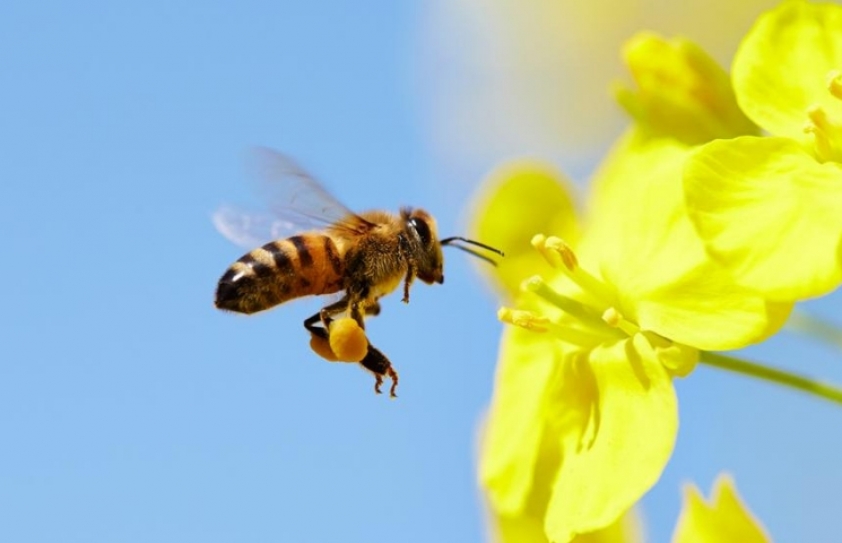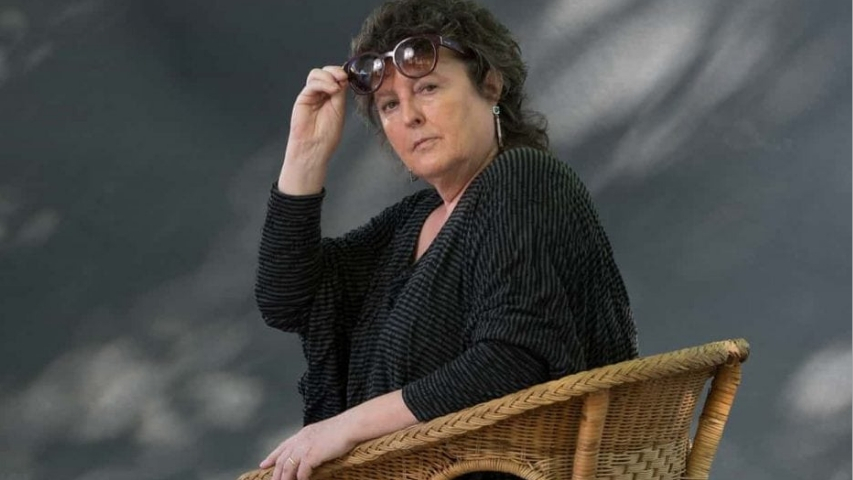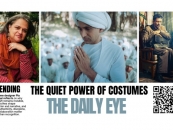
Poems that celebrate the insect world that is facing extinction
by Shruthi Venkatesh May 3 2019, 8:27 pm Estimated Reading Time: 3 mins, 25 secsPoet, playwright and freelance writer Carol Ann Duffy was born on 23 December 1955 in Glasgow and read philosophy at Liverpool University. She is a former editor of the poetry magazine Ambit and is a regular reviewer and broadcaster. She moved from London to Manchester in 1996 and began to lecture in poetry at Manchester Metropolitan University. Her papers were acquired by the Robert W. Woodruff Library of Emory University in 1999, and in October 2000 she was awarded a grant of £75,000 over a five-year period by the National Endowment for Science, Technology and the Arts. Her adult poetry collections won high recognition. She also writes picture books for children. Duffy is also an acclaimed playwright, and has had plays performed at the Liverpool Playhouse and the Almeida Theatre in London.
Duffy was appointed as Britain’s Poet Laureate on May 1, 2009, becoming both the first woman and the first openly lesbian poet to hold the position in its more than 300-year history. Now, to mark the end of her poet laureateship, Duffy introduces new poems celebrating the beauty and variety of an insect world facing extinction. She presents poems about our vanishing insect world.

Carol Ann Duffy, Scottish poet and playwright
When Duffy thought about gathering poets together to write about Brexit, she realized that there was something more important to be focused on. She came through the journal Biological Conservation which published the first global scientific review of the insect population, recording that more than 40% of species are declining and a third are endangered. The journal concludes, “unless we change our ways of producing food, insects as a whole will go down the path of extinction in a few decades. The repercussions this will have for the planet’s ecosystems are catastrophic.”
Duffy then thought about taking the issue in her poems, especially for school children who demonstrate against climate change and Extinction Rebellion that carry their trees on to Waterloo Bridge.
“Everything that lives is connected and poetry’s duty and joy is in making those connections visible in language” she states.
The Human Bee by Carol Ann Duffy
I became a human bee at twelve,
when they gave me my small wand,
my flask of pollen,
and I walked with the other bees
out to the orchards.
I worked first in apples,
climbed the ladder
into the childless arms of a tree
and busied myself, dipping and tickling.
duping and tackling, tracing
the petal’s guidelines
down to the stigma.
Human, humming,
I knew my lessons by heart:
the ovary would become the fruit,
the ovule the seed,
fertilised by my golden touch,
my Midas touch.
I moved to lemons,
head and shoulders
lost in blossom; dawn till dusk,
my delicate blessing.
All must be docile, kind, unfraught
for one fruit –
pomegranate, lychee,
nectarine, peach, the rhymeless orange.
And if an opening bud
was out of range,
I’d jump from my ladder onto a branch
and reach.
So that was my working life as a bee,
till my eyesight blurred,
my hand was a trembling bird
in the leaves,
the bones of my fingers thinner than wands.
And when they retired me,
I had my wine from the silent vines,
and I’d known love,
and I’d saved some money –
but I could not fly and I made no honey.
There are other poets who have written on the extinction of the insect population like Alice Oswald, Daljit Nagra, Paul Muldoon and more as follows:
Ladybird by Andrew McMillan
Moths & Butterflies by Michael Longley
The Host by Imtiaz Dharker
To a Lady, viewed by a Head-Louse by Denise Riley
Inners by Zaffar Kunial
Clegs and Midges by Paul Muldoon
Brimstone Moth (viewed under a Microscope) by Sean Borodale
Still Life by Mark Pajak
Imagines by Yvonne Reddick
Stevie Smith Is Still Ear by Daljit Nagra
Love Poem, Lampyridae (Glowworms) by Fiona Benson
Moth by Alice Oswald
A Swallowtail at Turf Fen by Matthew Hollis
Mantis by Ella Duffy
Mercy by Martha Sprackland




-173X130.jpg)
-173X130.jpg)

-173X130.jpg)
-173X130.jpg)
-173X130.jpg)
-173X130.jpg)
-173X130.jpg)